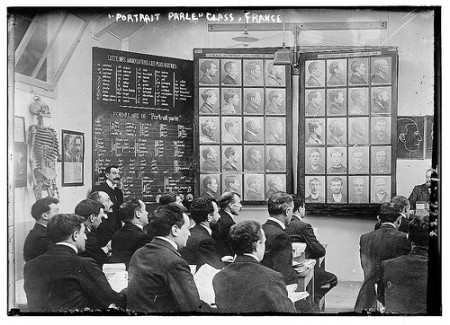手短に
Plenty of THATCamp participants are interested in picking up new skills from one another, so you might want to pre-arrange a few workshops to take place during your THATCamp. (注意: our workshop series used to be called “合宿,” 私たちは現在は非推奨している言葉. Also note that our Mellon fellowship program has ended as of 12/5/2011.)
Finding workshop instructors
As a THATCamp organizer, you might decide up front what workshops you will offer and who will teach them, or you might crowdsource those decisions to your THATCampers, or else you might do some combination of both. You might know some talented people in your area (perhaps even you or your co-organizers) who would be more than willing to teach a workshop at your THATCamp, and you could therefore set it all up beforehand. Alternatively, you can ask people who apply to your THATCamp “What would you like to learn?” and/or “What would you be willing and able to teach?” and plan your workshop offerings based on the answers to those questions.
If your THATCamp applicants have indicated that they’d like a workshop on a particular skill or topic, but you can’t find a qualified volunteer instructor in your region or among your applicants, post to the THATCampフォーラム with a request for help.
Scheduling the workshops
Organizers are increasingly saying that having a separate day dedicated to workshops is a good idea. 見る, 例えば, THATCamp Virginia’s dedicated workshop day, which took place before an additional day and a half of unconferencing. Some workshops have run concurrently with unconference sessions, しかしながら, as an educational track through the unconference, also with good success: インスタンスの参照 THATCamp New England’s schedule with workshop sessions incorporated. (注意: many participants did say in the evaluations that they’d have preferred that the workshop training sessions take place on a separate day.)
Giving participants workshop information
On a page on your website, you should give the following information for all workshops:
- Title
- Instructor’s name (preferably linked to a profile)
- Prerequisites (knowledge, スキル, accounts, ソフトウェア)
- Difficulty level of proposed workshop
- Description
カリキュラム
We have developed a broad curriculum to help you plan workshops at THATCamp. There can be as many workshops as you like, and they can all fit under one skill heading or under several different skill headings. We advise that all workshops should be 入門の (特に、マークアップやプログラミング言語を扱ったもの; コーディングの事前の知識を負いません) と強調する必要があります 第一原理, 背景, とコンテキスト; 最初の二つの見出しの下にあるもの以外のワークショップはまた、少なくとも一つを含むべきである ハンズオンエクササイズ (より何も難しいけれども “もしもし, 世界!”). ワークショップの例を以下に示す; 他の関連ワークショップを歓迎以上のもの. See the page on getting training at workshops for examples of past and upcoming workshop offerings.
- 技術の歴史と人文科学を理解する
- コンピューティングの簡単な歴史
- デジタル·ヒューマニティーの簡単な歴史
- 技術と人文科学に関連した進行中の法的、社会的問題を理解する
- 人文著作権問題
- 学術コミュニケーションにおける経済問題
- Googleブック検索和解
- 検索と人文情報を管理する
- Google Scholarの / データベース
- Googleブック検索
- Zoteroの / Mendeleyの / CiteULike
- 数値化, 編集, 整理, パブリッシング, と人文科学資料を保存する
- テキスト / 画像 / オーディオ / ビデオのデジタル化
- XML
- XSLT
- TEI
- EAD
- Omeka
- メタデータ標準
- インデキシング
- リンクされたデータ
- データベース及びデータ構造
- 収集, 通訳, 分析, と人文科学のデータを操作する
- Text mining
- 可視化ツール
- ウェブ解析
- ヤフー! パイプ
- オープンレイヤ
- ARCGIS
- 作成, 提示, と人文科学研究を公開
- HTMLの
- CSS
- Photoshop
- グラフィックデザイン
- 情報アーキテクチャ
- タイポグラフィ
- 有用性試験
- CommentPress / digress.it
- ワードプレス
- パワーポイント / 基調 / Prezi
- ビデオの作成
- オーディオ / ポッドキャストの作成
- 共同で作業する, 両方の正式と非公式に
- プロジェクト管理
- プロジェクト予算編成
- プロジェクト資金の取得
- ウィキ
- Googleドキュメント
- ソーシャルメディア
- プログラミング言語やツールを使用する
- JavaScriptが
- PHP
- MySQLの
- UNIX
- パール
- 正規表現
- ヤフー! パイプ
- Android用のGoogle Inventorの



